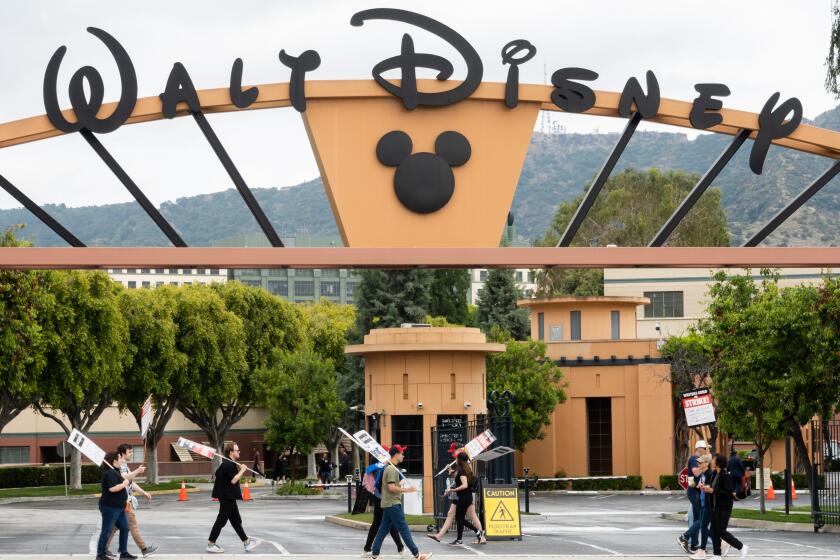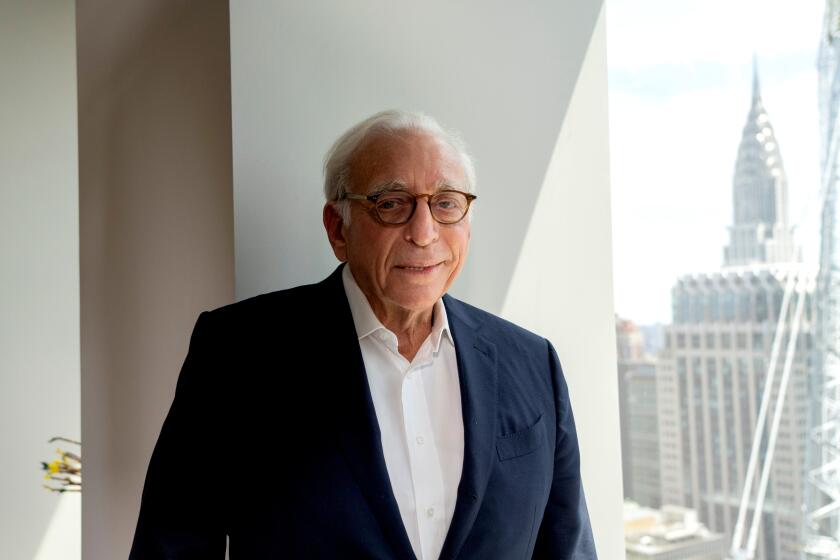Disney merges India media business with Reliance venture in $8.5-billion deal

- Share via
After weathering significant streaming losses, Walt Disney Co. is combining its India business with a venture owned by top local conglomerate Reliance Industries.
The companies announced Wednesday that they will merge their TV and streaming media assets into a joint venture.
The deal combines the businesses of Reliance-backed Viacom18 and Disney’s Star India. Reliance is investing $1.4 billion for a 63% interest in the joint venture. Disney will own the rest. The deal values the new joint venture at $8.5 billion, according to the companies.
Just months ago, it looked as though Disney CEO Bob Iger was struggling in his return to the legendary Burbank company. Now, he is on offense again as the company faces two boardroom challenges.
“India is the world’s most populous market, and we are excited for the opportunities that this joint venture will provide to create long-term value for the company,” Disney Chief Executive Bob Iger said in a statement. “Reliance has a deep understanding of the Indian market and consumer, and together we will create one of the country’s leading media companies, allowing us to better serve consumers with a broad portfolio of digital services and entertainment and sports content.”
It’s one of several big moves that Iger has made to right the Disney ship since retaking the helm in November 2022. Iger is facing a proxy contest from activist investors, including billionaire and Trian Partners Chief Executive Nelson Peltz, who is seeking a board seat at the company’s annual shareholder meeting on April 3. Another firm, Blackwells Capital, has put forward three of its own nominees.
Disney’s India streaming operation has posted significant losses. The company took over the Indian direct-to-consumer service Hotstar in 2019 as part of its $71-billion deal to acquire the assets of Rupert Murdoch’s 21st Century Fox.
For the second time in a year, activist investor Nelson Peltz is battling Bob Iger and Disney to shake up the company and nab two board seats.
Hotstar has been losing subscribers since Reliance poached the streaming media rights of Indian Premier League cricket while Bob Chapek was Disney’s chief executive. The decision to not overpay for cricket streaming rights was framed as a cost-conscious move at the time, but it caused Disney to lose significant ground in the market.
Cricket is as powerful a draw for viewers in India as the NFL is in the U.S.
Disney released its earnings report for the first quarter of 2024 as Bob Iger seeks to quell a proxy battle waged by investor Nelson Peltz.
The joint venture will put the TV and digital streaming platforms for entertainment and sports content under one roof, reaching more than 750 million viewers across India.
The combined entity will have exclusive rights to distribute Disney films and other productions in India.
Nita M. Ambani, the wife of Reliance chair and billionaire Mukesh Ambani, will be the chairperson of the venture. Former Disney executive Uday Shankar, who had joined Viacom18, will serve as vice chairperson “providing strategic guidance to the JV,” the companies said.
The transaction is subject to regulatory, shareholder and other customary approvals and is expected to be completed in the last quarter of 2024 or first quarter of 2025.
Disney said in regulatory filing that it plans to record noncash pretax impairment charges between $1.8 billion and $2.4 billion in the current quarter, half of which reflect a write-down of the net assets of Star India.
Disney stock Wednesday rose 1%, closing at $110.80, after the announcement of the merger deal. Analysts welcomed the move as it keeps Disney in the India market with less risk.
“We believe using a Joint Venture structure with a minority stake in India makes sense to maintain exposure to the significant potential growth, but to reduce volatility and take this risky and difficult market off Disney’s balance sheet,” Ric Prentiss of Raymond James wrote in a note to clients about the deal.
More to Read
Inside the business of entertainment
The Wide Shot brings you news, analysis and insights on everything from streaming wars to production — and what it all means for the future.
You may occasionally receive promotional content from the Los Angeles Times.














